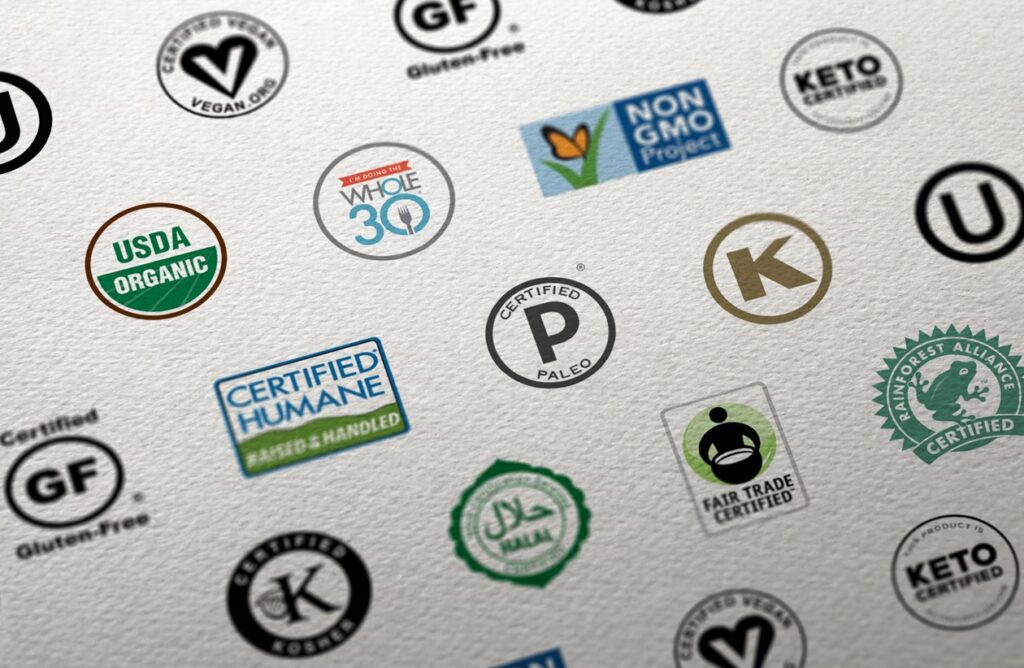Food certifications and labels are used on nearly every product in grocery stores nationwide. These certifications are issued by third party companies to verify that the products, methods, and systems used by the product’s manufacturer are meeting various food safety standards. There are a variety of third-party organizations that test and certify these products—ranging from religious institutions to the United States Government.

The Most Common Food Safety Certifications & What They Represent
This is one of the most common labels on grocery store shelves. These food products were tested and certified by the United States Department of Agriculture, meeting or exceeding their minimum standard of 95 percent organic ingredients.
The number of people going gluten-free is continuing to rise as people combat celiac disease or seek to avoid the symptoms of gluten intolerance. In 2017, there were over 3 million people in the United States who reportedly adhered to a gluten-free diet. With such an influx of interest in gluten-free products, many brands are catering to this audience by obtaining gluten-free certifications. There are many organizations that offer this certification with their own criteria, but a majority follow the standards of containing less than ten parts per million (ppm) of gluten.
A genetically modified organism (GMO) can be a plant, animal, or other organism being modified in a laboratory using engineering technology to create virus genes that do not occur traditionally. Though GMOs are regulated by the U.S. Food & Drug Administration (FDA), many people are trying to avoid GMOs based on their research. For a food brand to receive the Non-GMO label, they must be fully compliant with the standards of having no traces of genetically modified ingredients in their product.
Veganism is continually increasing in the United States with over 1.62 million people reporting that they are following a vegan diet. Due to the growth in this community, certified vegan is now a food safety label. In order to be approved as a certified vegan product, your product cannot contain any ingredients from animals or contain any animal derived GMOs. You must also not test your products on animals.
The classical ketogenic diet has grown in popularity throughout the past few years and as a result the keto-certified food safety label was developed. Because keto diets have strict rules, brands are improving their availability of keto-friendly products and adopting this food safety label. The Keto Certified standards require that the products meet specific targets for carbohydrate content and ingredients; meaning no artificial colors, flavors, or synthetic ketones.
In 2009, Melissa and Dallas Hartwig created the Whole30 diet to assist individuals in identifying problematic foods and ending their unhealthy cravings. Over the past decade, this diet gained traction among American consumers. In 2018, the International Food Information Council reported that over 5% of the American population follows the Whole30 diet. In order to meet the Whole30 certification standards, a food product must include no traces of the following: added sugars, alcohol, grains, dairy, legumes, carrageenan, MSG, or sulfites.
While these are some of the most popular labels you will encounter on your grocery run, this is by no means a comprehensive list. With such a high demand for transparency from food manufacturers as well as cleaner, healthier products, these certifications will undoubtedly continue to emerge and increase in visibility.
If you are a food brand looking to include food safety certifications on your products, contact us. We have the resources to help get you started!

